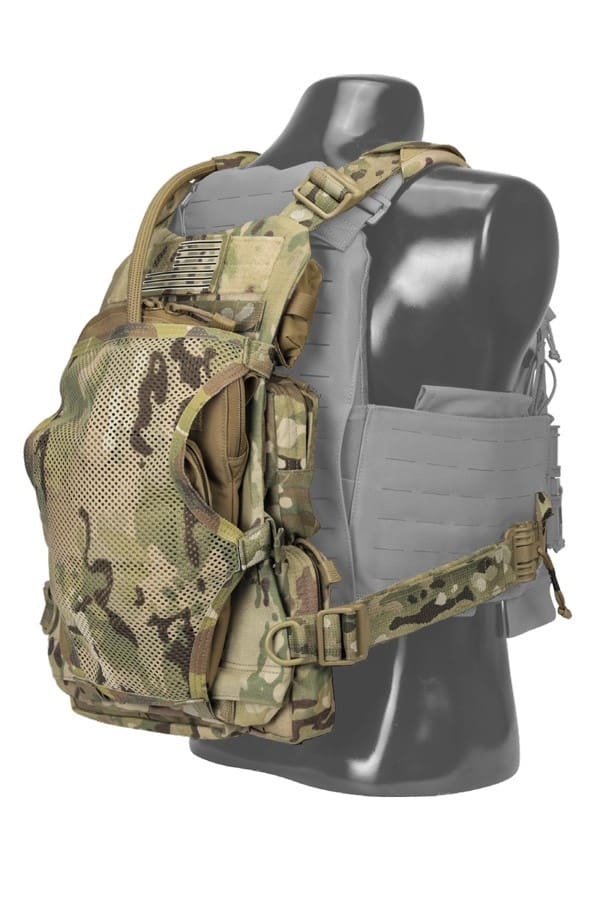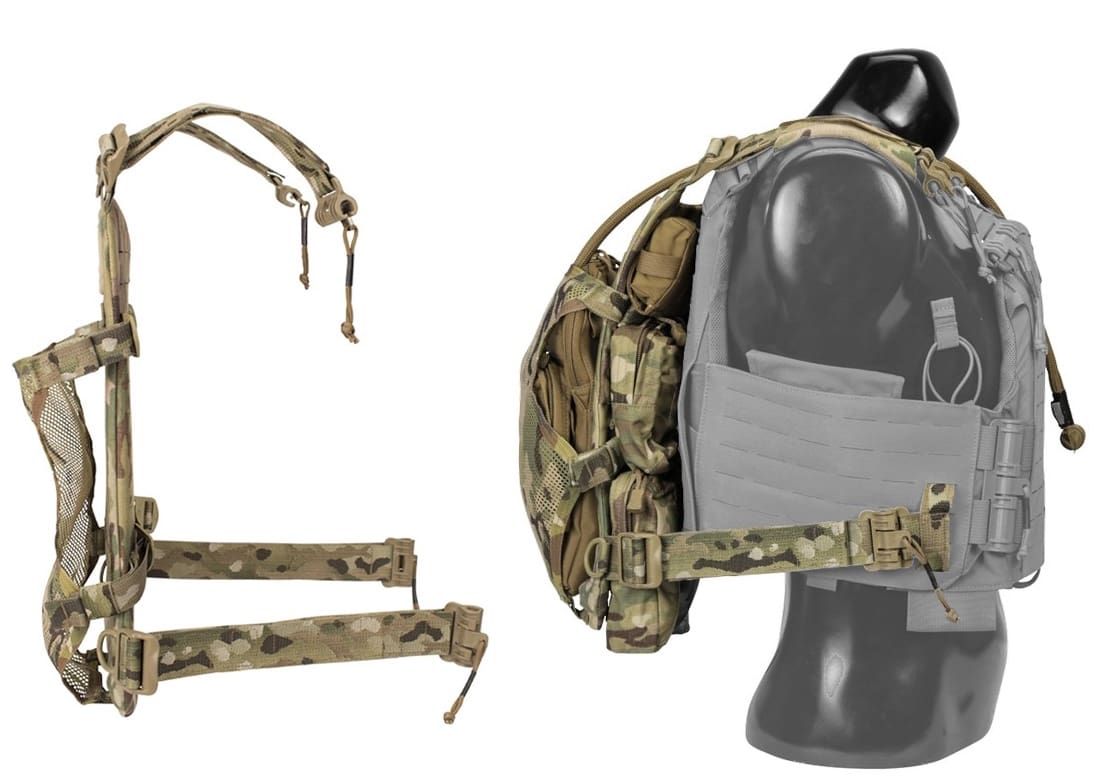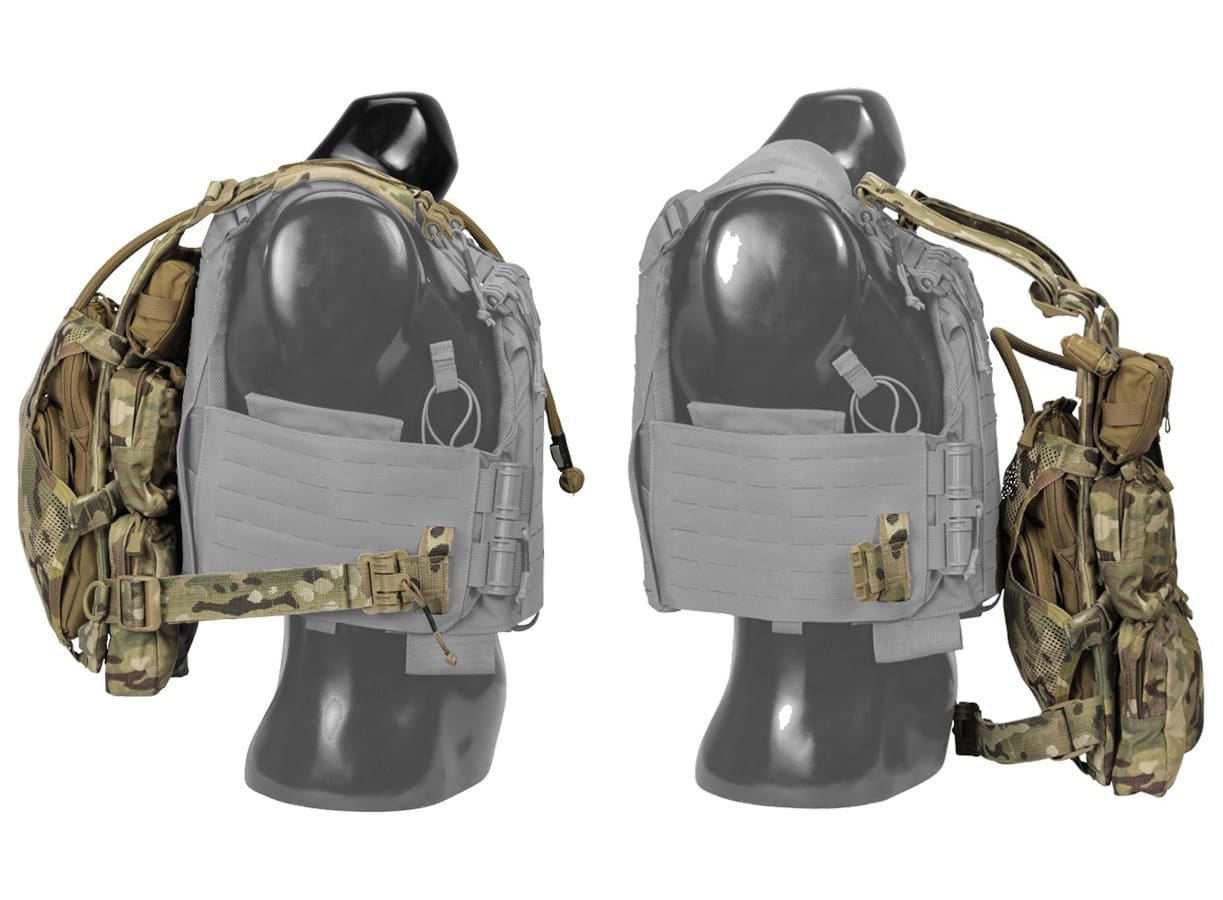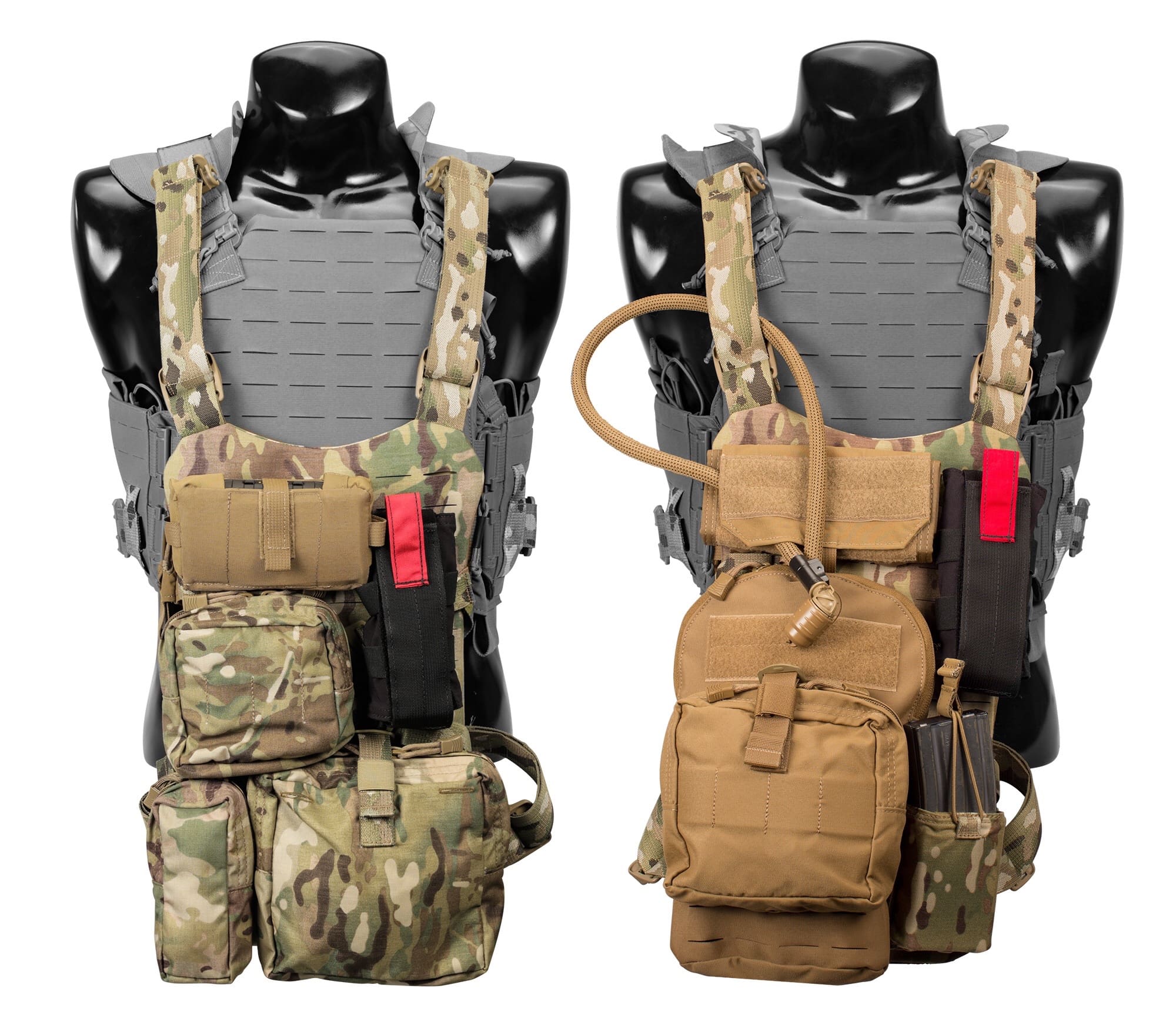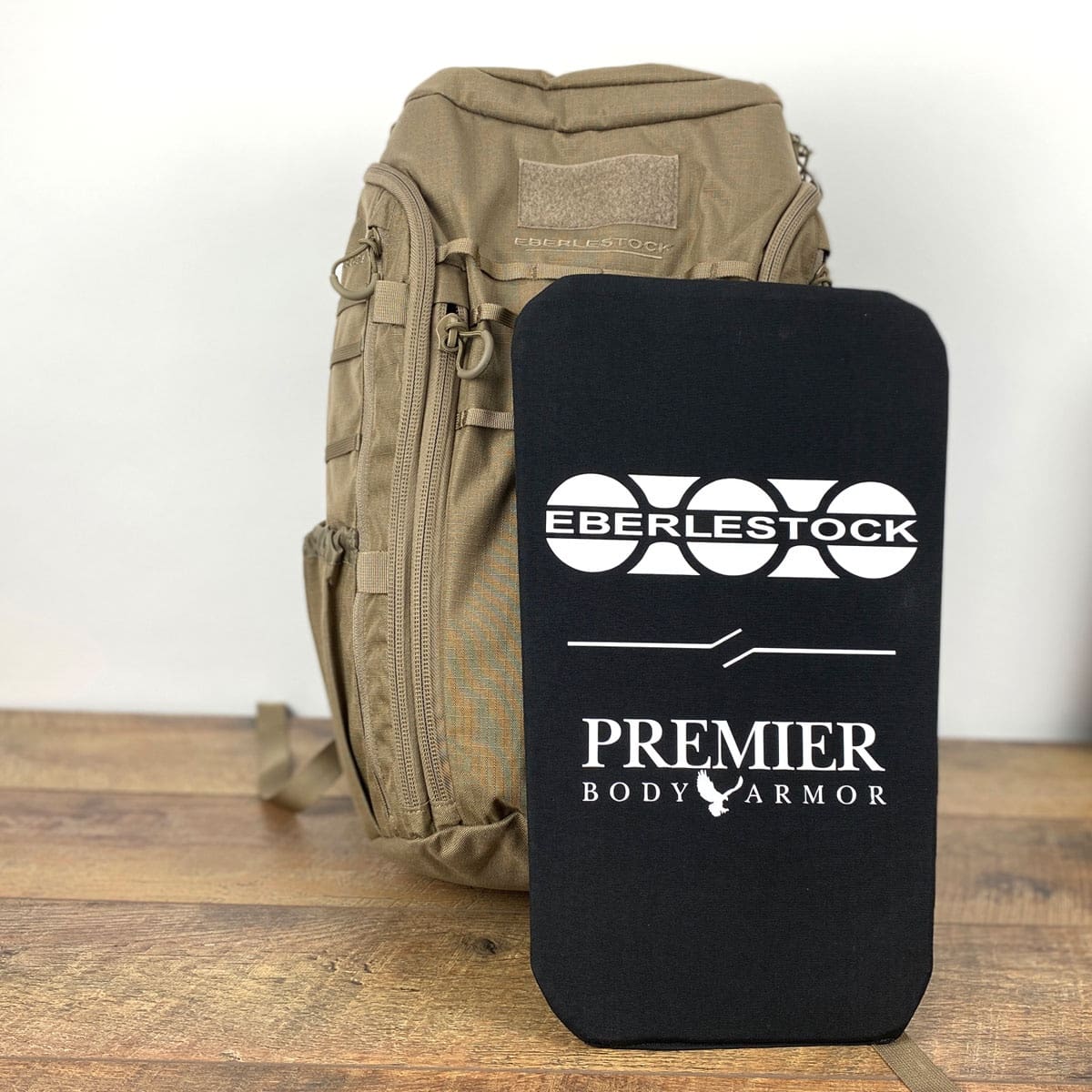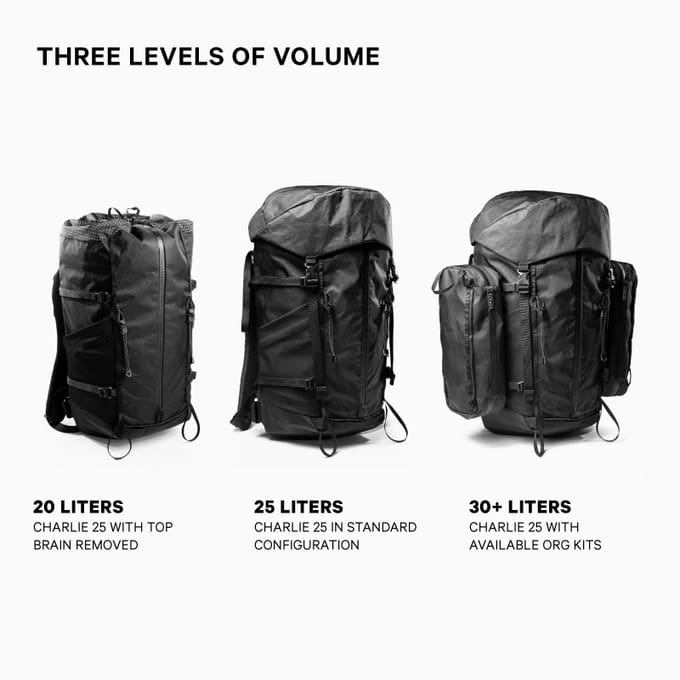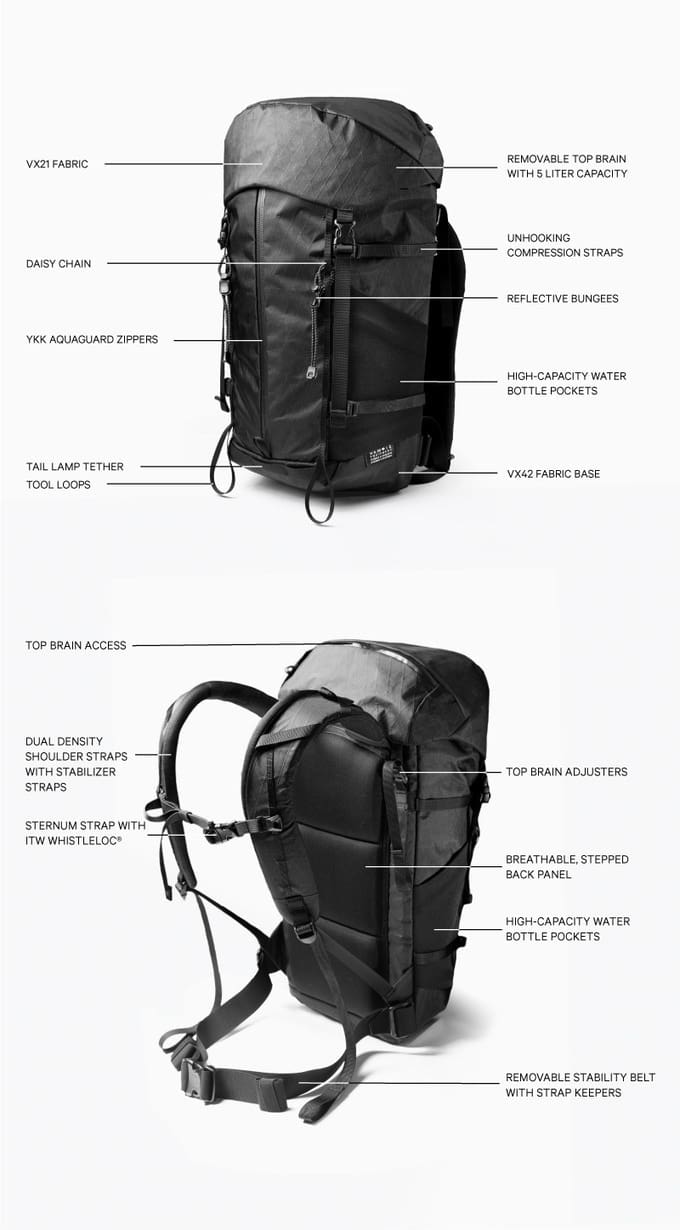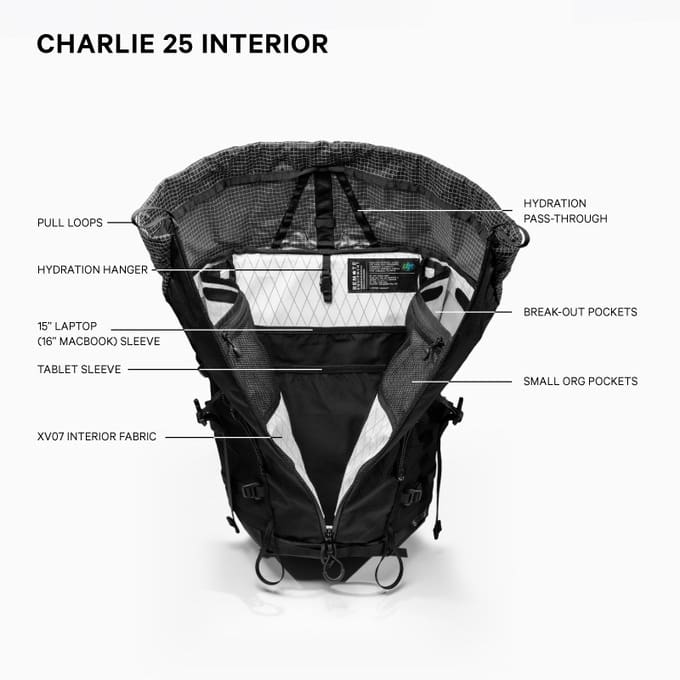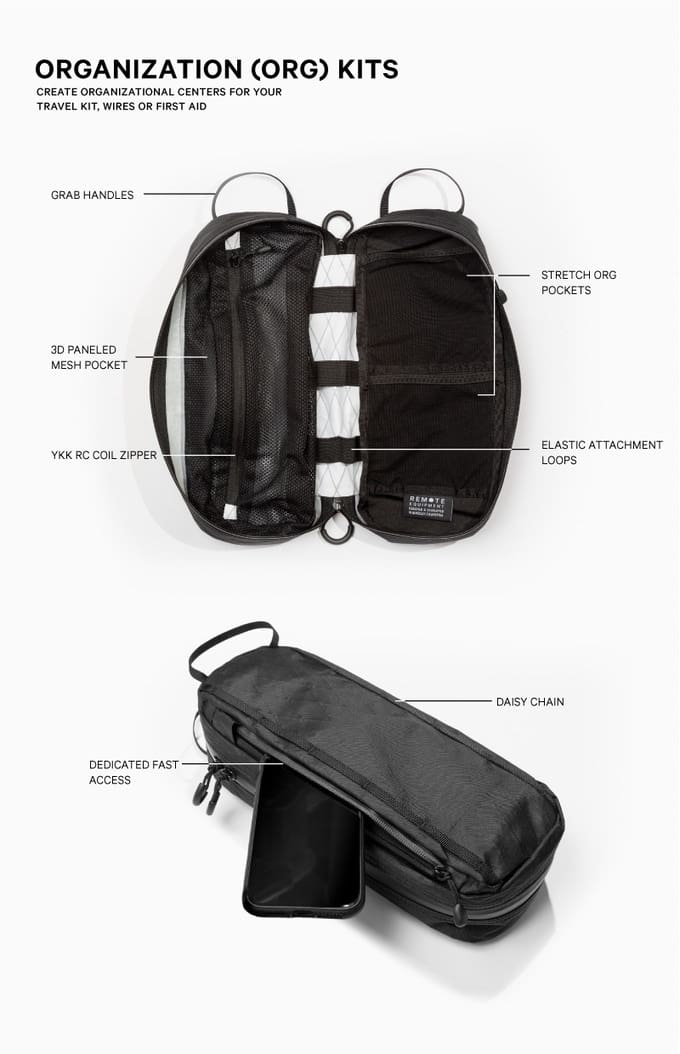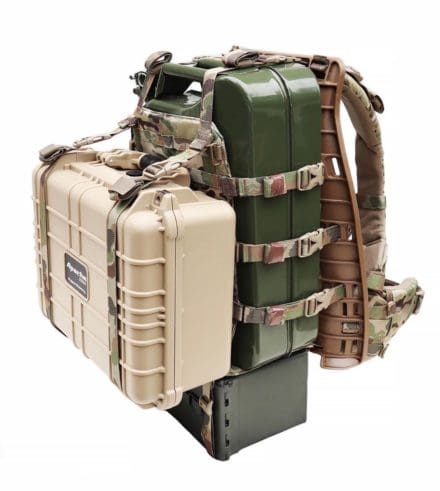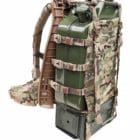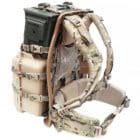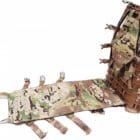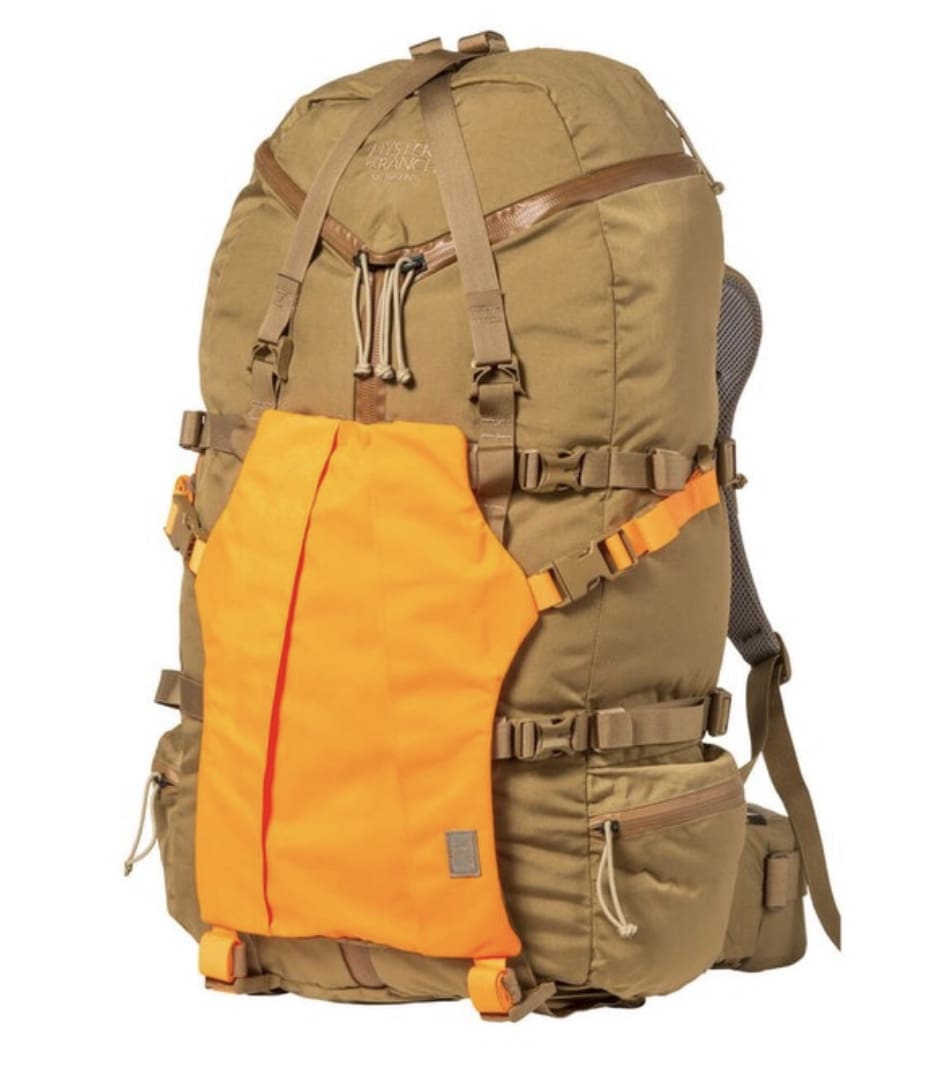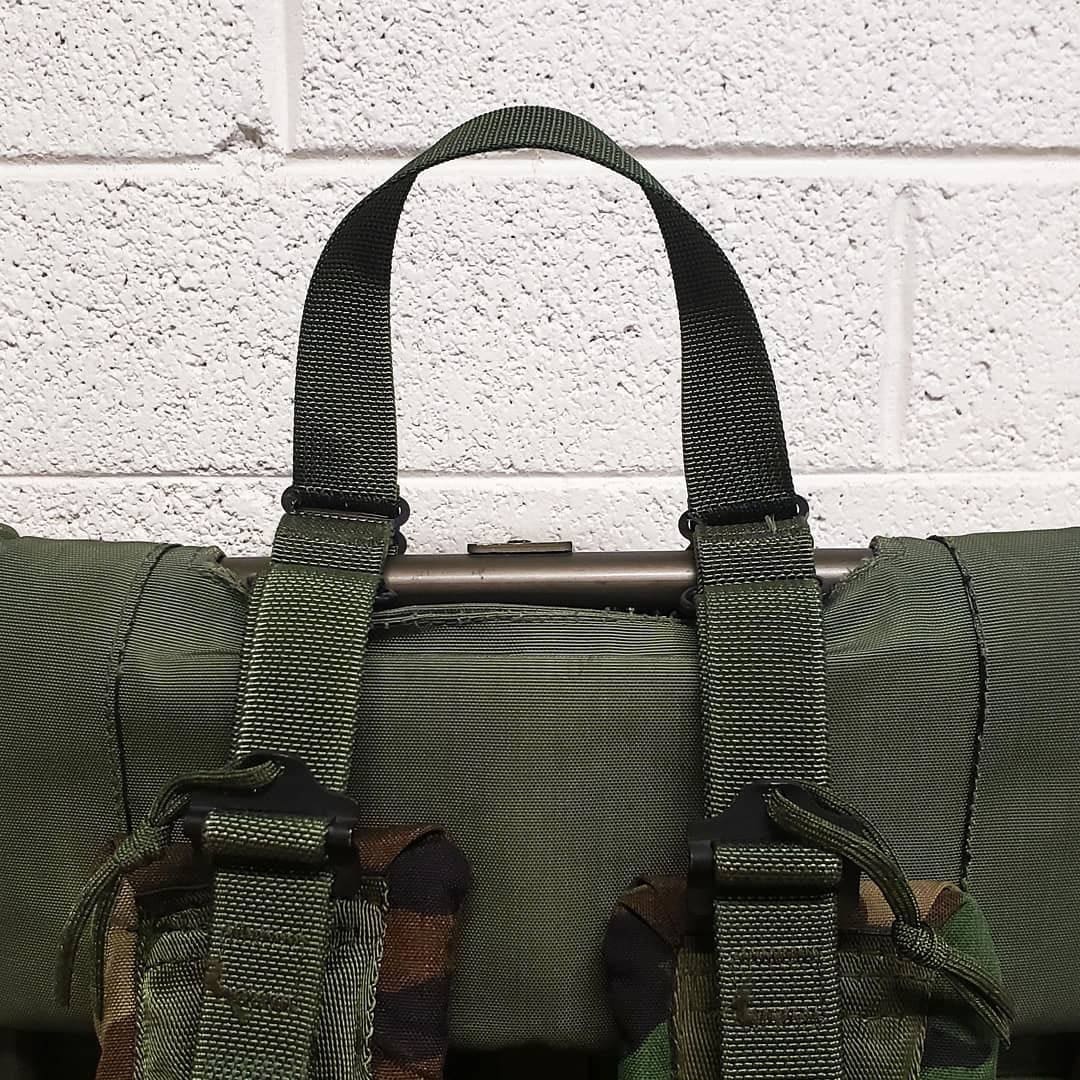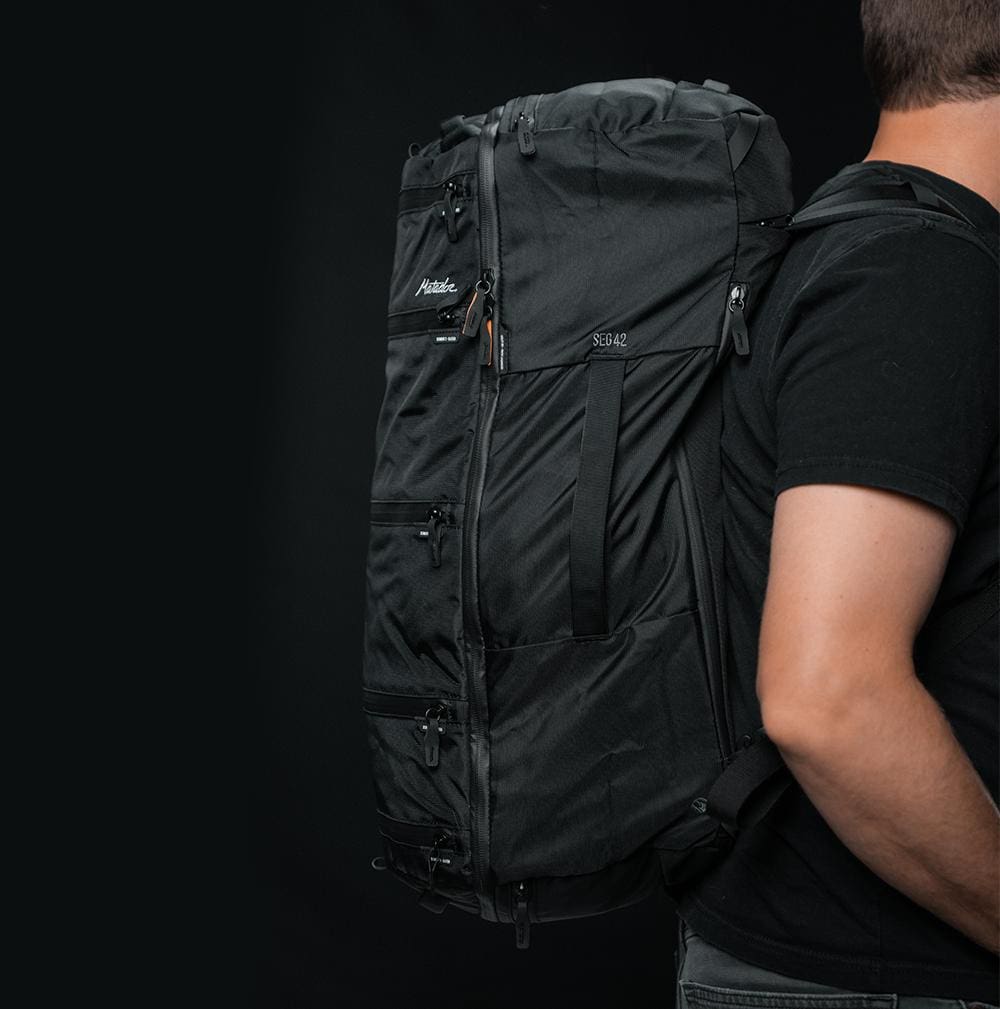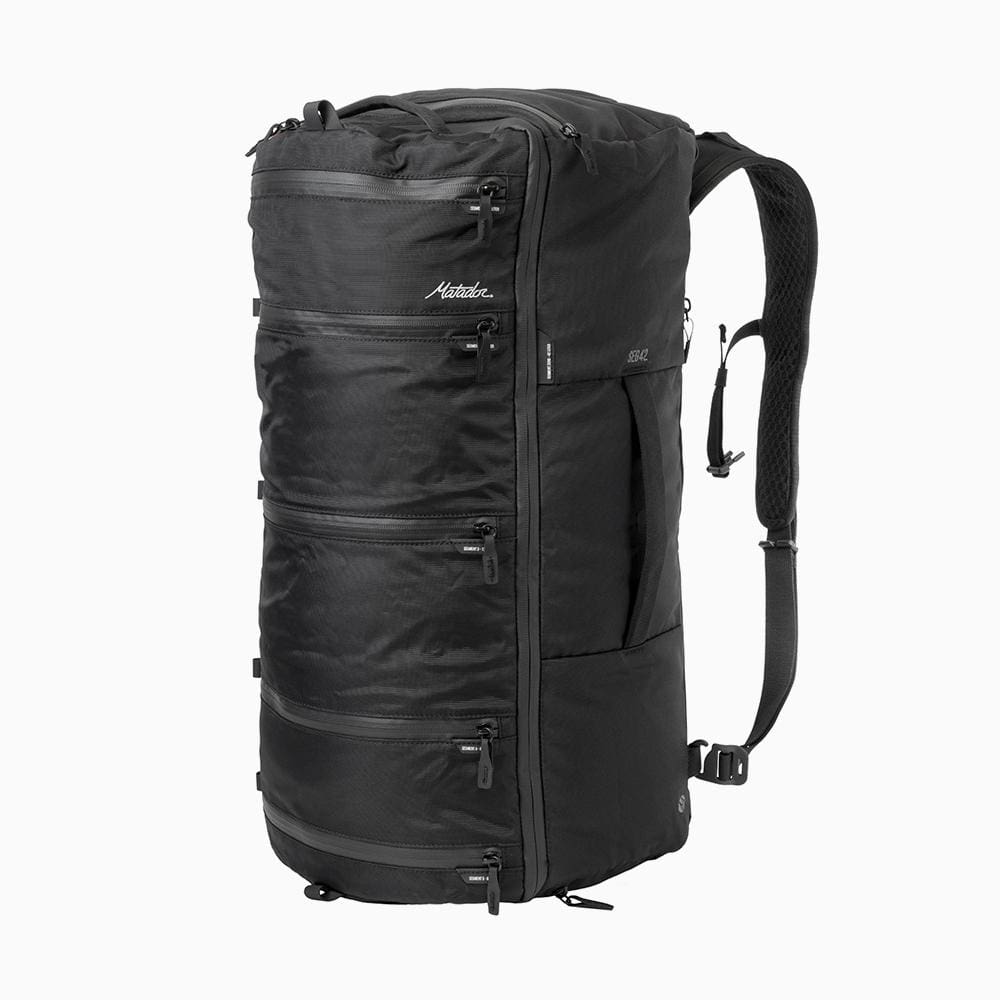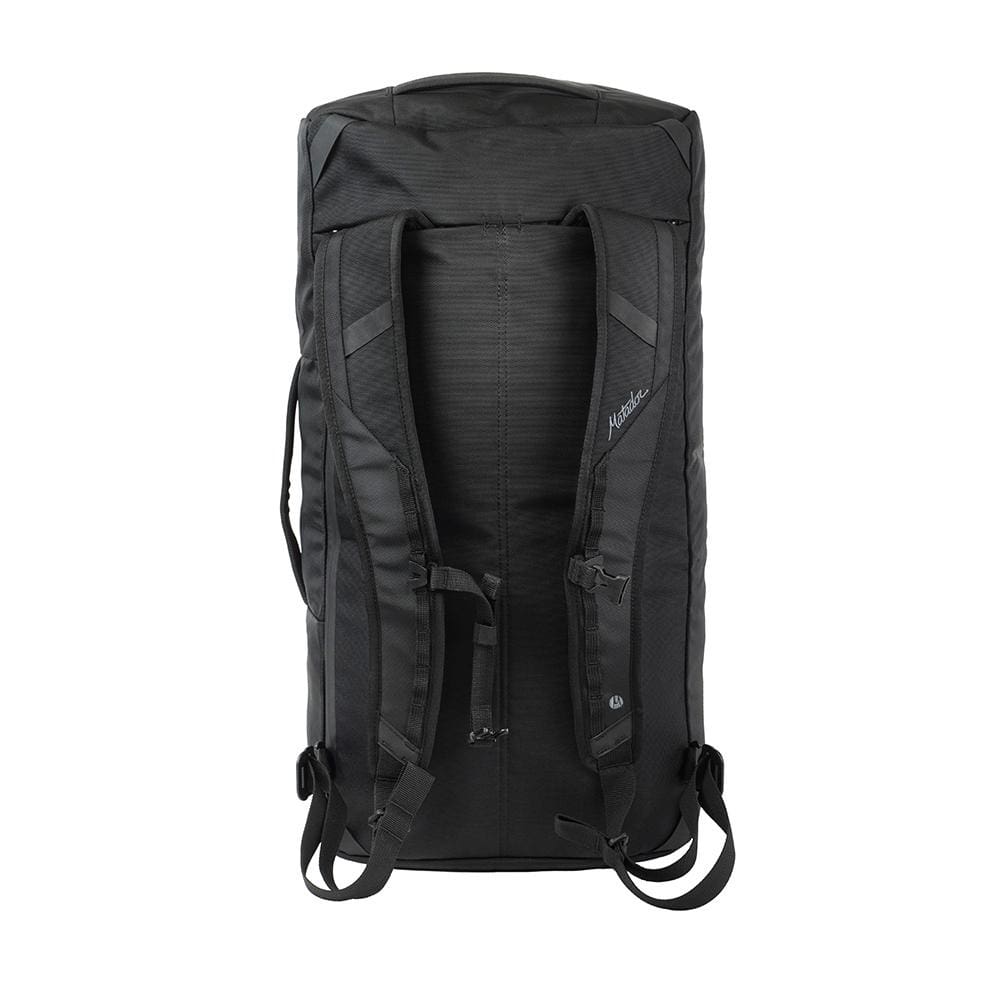Designed for requirements around their winning bid in the Norwegian TCCC program, the MYSTERY RANCH MOLE fills the demand for a scaled-down, feature-rich medical pack. Every square inch of this pack was designed with function in mind.
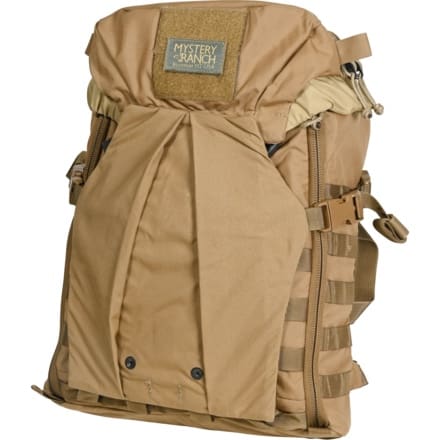
At 22L, the MOLE is similar in size, but has a slimmer profile than its popular predecessor, the RATS pack. It is built with custom spec’d 500D CORDURA® with Teflon® and PU coatings for maximum durability, UV and weather protection and finished off with IR-compliant YKK® zippers. The MOLE is highly configurable with its carrying options and internal organization, adapting to changing mission profiles.
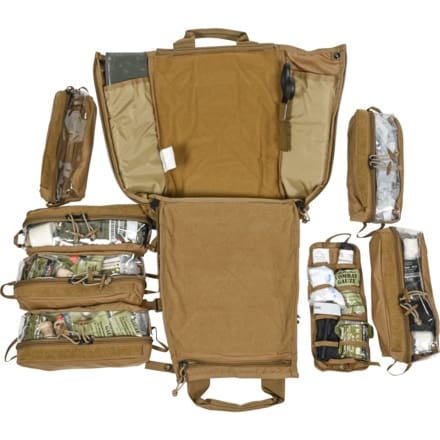
It features removable shoulder straps and waist belt, along with a system for attaching directly to body armor, and a top handle for multiple carrying options. Also noticeable is the incorporation of the removable Stick-it pouch for stowing a helmet, jacket or other bulky object on the outside. Underneath that are a sheath for trauma shears and dual tourniquet holders. The clamshell top lid opens widely for full-viewing access to contents.
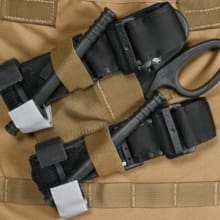
Interior removable panel for single-access items.

External shear pocket with elastic on either side for quick access items (tourniquets).
The main compartment splays open via one-handed access from its two-zip design, allowing full access to the removable internal pouches inside the pack. An additional, internal handle keeps from fighting the top lid when hanging the pack to work out of.

The internal main compartment is lined with loop fuzz which allows you to customize its five removable medical pockets. Each pocket has clear vinyl windows and internal elastic bands to keep items tidy. An extra removable panel is included for even faster access to certain materials such as tourniquets, gauze and/or gloves. Two inner sleeves along the sides provide secure slots for splints or other long items.
Here’s a quick video detailing the MOLE:
MYSTERY RANCH really stayed focused on versatility and quick access on this pack. The MOLE has already been very popular in Europe as it launches here, looks to be a consideration for your combat trauma essentials. Check out the full line of medical military packs and accessories at MYSTERY RANCH.
We are pleased to collaborate with our friends at North American Rescue for kitting out our medical packs for these photos and videos. Please contact NARescue customer service to order medical contents as shown.
*Contents not included with MR pack.


